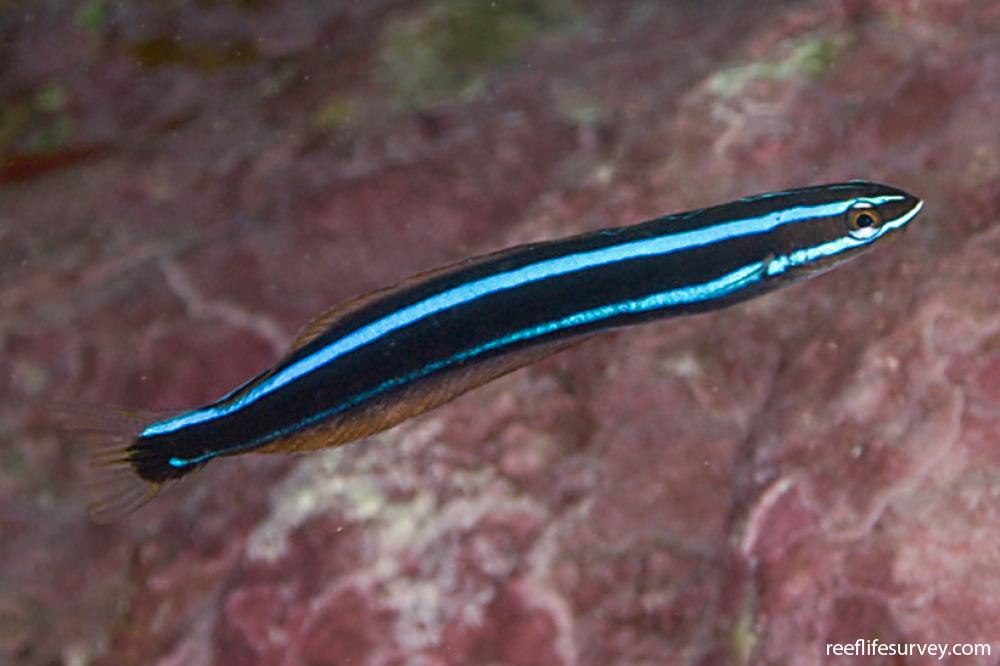Plagiotremus rhinorhynchos
Tube-worm blenny | Blue-lined Blenny | Blue-lined Sabretooth Blenny | Bluestriped Blenny | Bluestriped Fangblenny | Blunt-nosed Blenny | Cleaner Mimic | Twostripe BlennySimilar Species
Same Genus
Distribution
Temperate Africa, Temperate Australasia, Temperate northern Pacific, Tropical Indo-Pacific
Description
The bluestriped fangblenny has a flexible elongate body with typically dusky yellow/brown with white/pale blue stripes commencing either side of the eye and passing along the sides. It can be confused with the bluelined hulafish in Western Australia, and sometimes occurs in schools of that species, but the fangblennies’ tail is normal rather than elongated at the centre. This is the most common of several colourful fangblennies that live primarily in the tropics but are occasionally carried south by currents. They mimic cleaner wrasse by approaching large fish (and divers) as if to remove parasites. When close enough, they dart forward and remove a piece of flesh using two sharp fangs. Rapidly retreating to shelter often in old worm holes in reef the reef where they hide with heads poking out.
Information
Max Size: 12 cm
Sea Temperature Range: 16.2-31.2°C
Depth: 2-20m
Habitat Generalization Index: 13.73
Also referred to as the SGI (Species Generalisation Index), this describes the habitat niche breadth of the species. Species with values less than 15 are found in a relatively narrow range of reef habitat types (specialists), while those over 25 may be found on most hard substrates within their range (generalists). Learn more here.
Conservation and Rarity
IUCN Status: Not Evaluated
Occurrence: Common (21.9% of sites)
Occurrence describes how often the species is found on surveys within its distribution. It is calculated as the % of reef sites surveyed by RLS divers across all the ecoregions in which the species has been observed
Abundance: Few (2 per transect)
Abundance is calculated as the average number of individuals recorded per RLS transect, where present.
Edit by: GJ Edgar. 2008. Australian Marine Life. New Holland, Sydney




















